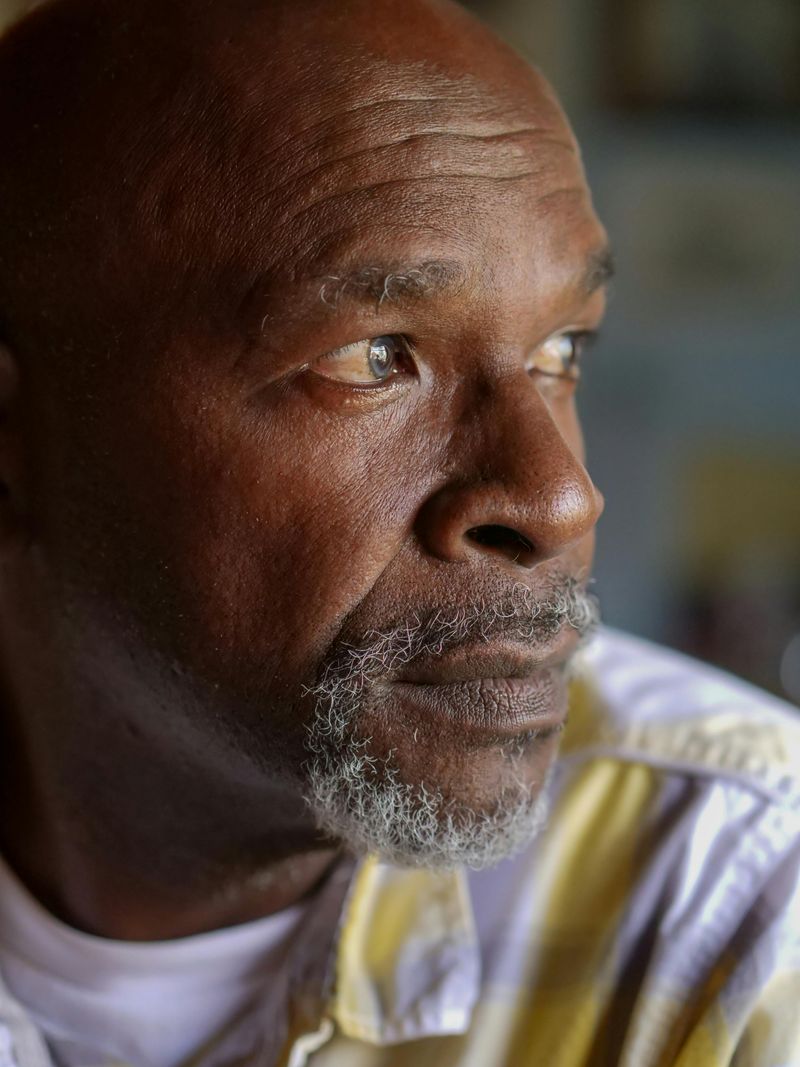If He Says These 13 Phrases Casually, He’s Secretly Miserable in the Relationship

Sometimes the words we say reveal more than we intend. When a man repeatedly uses certain phrases in everyday conversation, they can be subtle red flags signaling deeper unhappiness beneath the surface. Recognizing these verbal cues can help you understand what’s really going on in your relationship before emotional distance becomes permanent.
1. “I’m fine.”

This short, emotionless response often hides frustration or sadness bubbling underneath. Instead of addressing what’s actually bothering him, he deflects with these two simple words, hoping to avoid a deeper conversation that feels too uncomfortable or exhausting.
Over time, saying “I’m fine” becomes a protective barrier that conceals his true unhappiness. It prevents real connection from forming because honest feelings stay locked away.
When this phrase becomes his go-to answer, it’s worth gently encouraging more open dialogue about emotions before the distance grows too wide.
2. “Whatever you want.”

When a man stops expressing his own opinions or preferences entirely, it can signal serious emotional withdrawal from the partnership. This phrase reflects apathy rather than genuine agreement or compromise.
He’s essentially checking out mentally, showing he’s lost interest in being an active participant in decisions that shape your shared life together. His voice has gone silent not because he’s easygoing, but because he no longer feels invested enough to care.
Healthy relationships thrive on two people contributing their thoughts and desires. When one partner consistently defers without real engagement, something important has shifted beneath the surface.
3. “Can we talk about this later?”

Avoiding emotional discussions is a hallmark of disengagement and withdrawal. He may feel too emotionally drained to deal with conflict in the moment, or he fears that expressing his true feelings will only make an already difficult situation worse.
Sometimes “later” never actually comes. This postponement becomes a permanent delay tactic that prevents resolution and understanding from ever taking place.
While timing matters in conversations, consistently pushing discussions aside suggests he’s checked out mentally. He’d rather avoid than address, which slowly erodes the foundation of trust and communication you’ve built together over time.
4. “I’ll be home late.”

Subtle distancing often shows up through changing schedules and priorities. Staying late at work repeatedly or finding various reasons not to come home early can mask a deeper desire to avoid emotional discomfort or tension waiting at home.
While legitimate work demands happen, a pattern of deliberate absence suggests he’s seeking refuge elsewhere. Physical distance becomes easier than facing whatever emotional gap exists between you.
Pay attention to whether these late nights coincide with relationship struggles. Sometimes avoiding home becomes the path of least resistance when someone feels miserable but doesn’t know how to fix things.
5. “It’s not a big deal.”

Minimizing problems serves as a defense mechanism against vulnerability and conflict. When he says this repeatedly about issues that clearly matter, it’s often an attempt to suppress difficult conversations or avoid emotional exposure.
This phrase signals that he feels either unheard or too emotionally exhausted to engage in resolving genuine concerns. Rather than addressing what’s wrong, he dismisses it, hoping the problem will simply fade away on its own.
But sweeping things under the rug only creates bigger mounds of resentment over time. His casual dismissal might actually be masking how overwhelmed he truly feels inside.
6. “You don’t understand.”

Feeling misunderstood cuts deep in any relationship. This phrase suggests growing emotional disconnection and brewing resentment that’s been building quietly over time.
When a partner feels invalidated or believes his emotions aren’t being heard or respected, he may start pulling away emotionally. He becomes convinced that you can’t truly relate to his feelings, struggles, or inner world anymore, creating an invisible wall between you.
This statement is often a last attempt to express isolation before he stops trying altogether. It’s a plea wrapped in frustration, signaling that empathy feels absent from your interactions together.
7. “I miss how things used to be.”

Nostalgia can reveal deep dissatisfaction with the present state of your relationship. When he dwells on the past frequently, it’s often because he’s mourning the loss of closeness, spontaneity, or affection that once defined what you shared.
This backward glance suggests that something vital has changed or disappeared. Perhaps the laughter came easier before, or intimacy felt more natural and less forced or scheduled.
While reminiscing occasionally is normal, constant longing for “the good old days” indicates he’s struggling to find happiness in the relationship as it exists right now.
8. “I’m doing my best.”

On the surface, this sounds positive and reassuring. But listen closer—it often carries a defensive edge that reveals deeper feelings of inadequacy or being underappreciated.
He says this when he feels constantly criticized, judged, or like his efforts go unnoticed no matter how hard he tries. It’s an attempt to justify effort that no longer feels recognized or valued by his partner.
This phrase can signal quiet desperation. He’s essentially saying, “Please see that I’m trying,” while simultaneously feeling like it’s never enough. That emotional exhaustion breeds resentment and misery over time.
9. “We’re just different now.”

This statement reflects acceptance of emotional distance rather than a desire to bridge it. He’s acknowledging a divide between who you once were as a couple and who you’ve become, often signaling quiet resignation rather than hope for repair.
People do change over time, but healthy couples grow together rather than apart. When he uses this phrase, he’s essentially admitting that the gap feels too wide to cross anymore.
It’s a sad recognition that shared dreams, values, or priorities have drifted too far. This isn’t said with anger—it’s said with the heavy weight of acceptance.
10. “I don’t want to talk about it.”

Silence can be louder than words. Refusing to engage emotionally suggests he’s completely shut down inside, feeling that communication has become pointless or that his emotions won’t be met with empathy or understanding.
When a man builds walls around his feelings this way, it’s often because previous attempts to share were dismissed, criticized, or ignored. He’s protecting himself from further hurt by simply refusing to be vulnerable anymore.
This emotional shutdown is one of the most dangerous signs. Without communication, connection dies, and misery festers in the silence between you both.
11. “It doesn’t matter.”

A simple but telling sign of quiet resignation and defeat. When he starts using this phrase frequently about things that should matter, it means he’s stopped believing things will improve or change for the better.
He’s choosing indifference over confrontation because fighting for the relationship feels pointless now. His emotional investment has dwindled to the point where caring takes more energy than he has left to give.
This phrase signals the end stage of misery—when hope fades and apathy takes its place. It’s perhaps the most heartbreaking sign because it shows he’s already mentally checked out completely.
12. “You never listen to me.”

Feeling unheard is one of the deepest forms of emotional isolation. When he expresses this, it’s a plea for understanding—but if ignored, it can turn into permanent detachment.
This phrase doesn’t usually appear out of nowhere. It builds over time, through conversations where he felt dismissed or interrupted. Maybe he shared something important and you were distracted by your phone, or perhaps his concerns were brushed aside too many times.
Pay attention when these words surface. They signal that emotional connection is fraying. Active listening means putting down distractions, making eye contact, and truly absorbing what he’s saying. Without it, resentment grows silently until the relationship feels like talking to a wall instead of a partner.
13. “I guess we’ve grown apart.”

This phrase often emerges when emotional intimacy has faded. It reflects not anger but sadness—a recognition that shared dreams or priorities have drifted too far to reconnect easily.
Growing apart happens gradually, like two trees planted close together that lean in different directions as they grow. Hobbies change, friend groups shift, and suddenly you’re living parallel lives under the same roof. He might feel like you’re roommates instead of lovers.
When someone says this, they’re acknowledging a painful truth. The spark that once connected you feels distant now. Rekindling requires intentional effort—scheduling quality time, rediscovering shared interests, and having honest conversations about where you both want to go. Without action, the gap widens.

Comments
Loading…